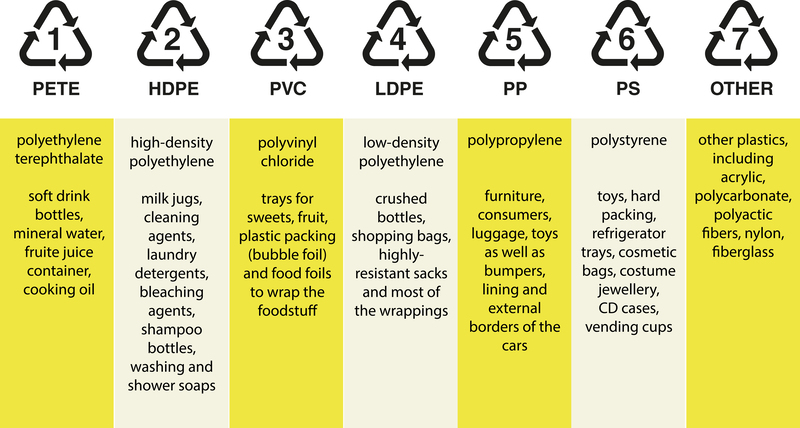Fostering Responsibility with School Recycling
In today's world, cultivating environmental responsibility has become an integral part of education. One of the most effective ways to inspire students to care for the planet is by fostering responsibility with school recycling programs. Integrating these initiatives can transform not just the school's environmental footprint, but also build lifelong values in students. This comprehensive guide explores how educational institutions can nurture eco-friendly habits and empower future generations to take real action in creating a sustainable world.

Why Focus on School Recycling Programs?
School recycling is more than just a collection of blue bins in hallways. It is a vital tool for teaching responsibility, critical thinking, and active citizenship. By involving students in recycling, schools help them understand the broader impact of their actions and the importance of sustainability.
- Environmental Impact: Schools generate significant waste, especially paper and plastics. Proper recycling reduces landfill overflow and conserves resources.
- Educational Value: Embedding recycling into the curriculum encourages inquiry, research, and problem-solving.
- Civic Engagement: Engaged students influence their families and communities, amplifying the effects of sustainable practices.
- Personal Responsibility: Recycling nurtures habits of mindfulness, discipline, and accountability.
The Role of Schools in Teaching Sustainability
Schools are not just centers for academic learning, but also agents of social change. By implementing strong student recycling initiatives, schools send a clear message: everyone can make a difference.
- Sustainability education promotes environmental stewardship.
- Recycling programs foster responsibility, both individually and collectively.
- Integrating eco-friendly habits prepares students for the challenges of the 21st century.
Building a Successful School Recycling Program
Creating a thriving recycling initiative in a school setting takes planning, participation, and a long-term vision. Here are the essential elements to incorporate:
1. Assess Current Waste Management Systems
Begin by conducting a waste audit. Find out what types of waste the school produces most and identify existing recycling facilities. This data-driven approach provides the roadmap for establishing effective collection points and targets.
2. Set Clear, Achievable Goals
Schools succeed when everyone understands the purpose of the recycling initiative. Create measurable targets, such as reducing paper waste by 40% in one year or diverting all plastic bottles from landfills.
- Short-term goals build initial momentum and confidence.
- Long-term goals foster a culture of responsibility and ongoing commitment.
3. Engage the Whole School Community
A school recycling program is most effective when students, teachers, staff, and parents work together:
- Host workshops or assemblies to introduce recycling practices.
- Encourage student leadership by forming 'Green Teams' or eco-clubs to monitor and promote recycling efforts.
- Share progress and celebrate milestones in newsletters, online platforms, and during school events.
4. Education and Awareness-Building
Education is the heart of fostering responsibility with school recycling. Use engaging strategies such as:
- Incorporating recycling themes into science, geography, and citizenship lessons.
- Interactive activities like waste sorting games, poster-making, or recycling competitions.
- Bringing in community experts or guest speakers on waste management and sustainability.
5. Invest in the Right Infrastructure
Having accessible, clearly labeled bins is crucial for any effective school recycling system. Consider color-coding or pictograms for young students. Place bins in high-traffic areas, like cafeterias, classrooms, and playgrounds.
- Provide separate bins for paper, plastics, metals, and organics, as appropriate.
- Train janitorial staff on correct collection and handling procedures.
6. Monitor Progress and Adapt
Regular review ensures the program stays on track. Involve students in the process by having them tally the quantities recycled, or maintain recycling journals. Adjust goals and tactics as needed to improve participation and outcomes.
Empowering Students: Instilling Responsibility Through Recycling
Fostering a culture of responsibility through recycling at school has profound benefits. By giving students real ownership and leadership roles, they learn valuable life skills while helping the planet.
- Leadership: Student-led recycling initiatives promote autonomy, accountability, and teamwork.
- Citizenship: Participating in green projects nurtures civic pride and ethical awareness.
- Sustainability Mindset: Early exposure to recycling helps form sustainable habits that last into adulthood.
Examples of Student Involvement
*In many schools, students are the driving force behind successful recycling efforts.*
- Green Teams: Groups of student volunteers who oversee recycling stations, educate peers, and lead school campaigns.
- Classroom Ambassadors: Individuals assigned to monitor bins, remind classmates to recycle correctly, and encourage accountability.
- Recycling Competitions: Friendly contests between grades or classes to see who can recycle the most, fostering a sense of achievement and fun.
Bigger Picture: Connecting School Recycling with the Community
Successful school recycling programs often extend their impact by partnering with local organizations. This engagement helps students see the real-world implications of their efforts, learn from experts, and make a tangible difference beyond school walls.
- Field Trips: Visiting local recycling centers or landfills to witness first-hand where waste goes, making abstract concepts real and memorable.
- Community Campaigns: Students can organize neighborhood clean-ups, educate residents about recycling, or collect recyclables from local businesses.
- Partnerships: Collaborating with municipal waste management services or non-profits enhances resources and reach.
Overcoming Challenges in School Recycling Programs
While the benefits are abundant, building a responsible school recycling culture can face hurdles. Here's how to address some common challenges:
- Lack of Awareness: Run regular awareness sessions and use visual reminders to reinforce the importance and methods of recycling.
- Contamination: Incorrect disposal of items can ruin recycling efforts. Provide clear instructions and periodic training to avoid this.
- Insufficient Resources: Engage local businesses or parent associations for funding and donations of bins, supplies, or event sponsorship.
- Resistance to Change: Address skepticism by sharing positive examples, inviting feedback, and celebrating small wins to shift mindsets.
Integrating Recycling into the Curriculum
To truly foster responsibility with school recycling, embed environmental stewardship across subjects and grade levels.
- Science classes can explore waste decomposition, energy cycles, and material properties.
- Mathematics can apply data handling to analyze recycling rates and environmental impact statistics.
- Language arts might feature persuasive essays or creative writing about sustainability and green innovations.
- Social studies can examine global waste challenges, government policies, and the ethical dimensions of consumption.
*Art and design classes could develop posters, recycled sculptures, or campaigns to promote recycling within the school and local community.*
The Power of Storytelling
Storytelling, whether through school blogs, assemblies, or class presentations, brings abstract environmental concepts to life. Encourage students to share their experiences or research about how recycling makes a difference. Personal stories help foster a deeper sense of responsibility and motivate others to join in.

Long-Term Benefits of School Recycling Programs
Teaching responsibility through recycling at school yields dividends far beyond the classroom.
- Eco-Literacy: Students who understand sustainability are better prepared for responsible adulthood and greener careers.
- Healthier Schools: Cleaner environments reduces hazards associated with waste and landfill overflow.
- Community Involvement: School recycling projects often inspire families and neighborhoods to adopt similar habits, multiplying the positive impact.
- Leadership Skills: Students gain confidence in problem solving, project management, and teamwork through hands-on recycling activities.
- Mitigating Climate Change: Reducing landfill waste through recycling decreases greenhouse gas emissions and conserves natural resources, helping to fight global warming.
Conclusion: Building a Responsible Future with School Recycling
Fostering responsibility with school recycling equips students with the knowledge, skills, and values required in a rapidly changing world. Beyond environmental impact, it nurtures a generation of conscious citizens ready to care for their communities and the planet. Through strategic programs, hands-on involvement, and integration across the curriculum, schools become powerful engines for positive change. By starting with simple actions and nurturing lasting habits, educational institutions can ensure that environmental responsibility becomes second nature to our future leaders.
Further Reading and Resources
- EPA: Reducing Waste - What You Can Do
- NRDC: Recycling in Schools
- Green America: Recycling Education in K-12 Schools
- Earth Day Organization: Schools
Start making a difference today by fostering responsibility with school recycling - for your students, your school, and the planet.